West rejects Putin’s claim it sabotaged Baltic gas pipelines
Advertisement
Read this article for free:
or
Already have an account? Log in here »
To continue reading, please subscribe:
Monthly Digital Subscription
$0 for the first 4 weeks*
- Enjoy unlimited reading on winnipegfreepress.com
- Read the E-Edition, our digital replica newspaper
- Access News Break, our award-winning app
- Play interactive puzzles
*No charge for 4 weeks then price increases to the regular rate of $19.00 plus GST every four weeks. Offer available to new and qualified returning subscribers only. Cancel any time.
Monthly Digital Subscription
$4.75/week*
- Enjoy unlimited reading on winnipegfreepress.com
- Read the E-Edition, our digital replica newspaper
- Access News Break, our award-winning app
- Play interactive puzzles
*Billed as $19 plus GST every four weeks. Cancel any time.
To continue reading, please subscribe:
Add Free Press access to your Brandon Sun subscription for only an additional
$1 for the first 4 weeks*
*Your next subscription payment will increase by $1.00 and you will be charged $16.99 plus GST for four weeks. After four weeks, your payment will increase to $23.99 plus GST every four weeks.
Read unlimited articles for free today:
or
Already have an account? Log in here »
Hey there, time traveller!
This article was published 30/09/2022 (1167 days ago), so information in it may no longer be current.
COPENHAGEN, Denmark (AP) — Russian President Vladimir Putin on Friday accused the West of sabotaging Russia-built natural gas pipelines under the Baltic Sea to Germany, a charge vehemently denied by the United States and its allies.
Nordic nations said the undersea blasts that damaged the pipelines this week and have led to huge methane leaks involved several hundred pounds of explosives.
The U.S.-Russia clashes continued later at an emergency meeting of the U.N. Security Council in New York called by Russia on the attacks on the Nord Stream 1 and 2 pipelines, and as Norwegian researchers published a map projecting that a huge plume of methane from the damaged pipelines will travel over large swaths of the Nordic region.
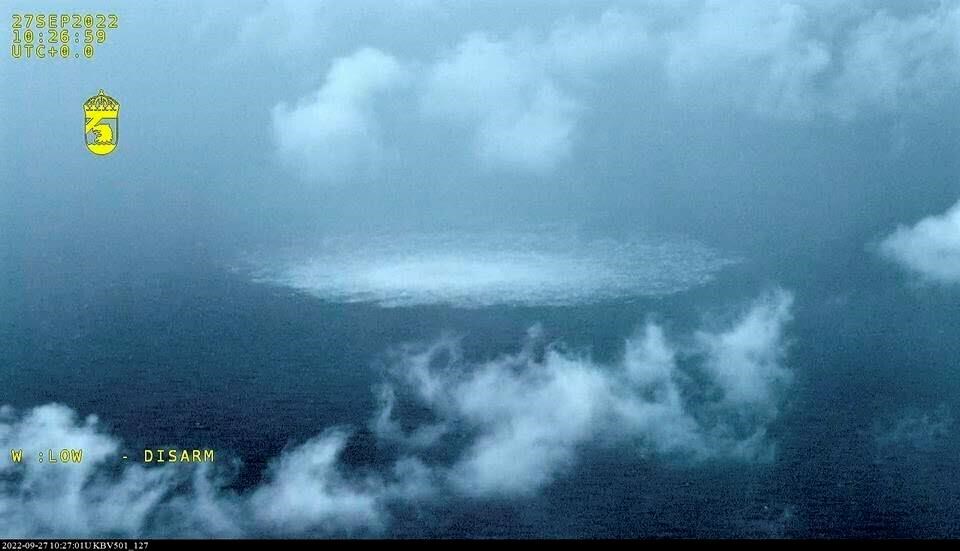
Speaking Friday in Moscow at a ceremony to annex four regions of Ukraine into Russia, Putin claimed that “Anglo-Saxons” in the West have turned from imposing sanctions on Russia to “terror attacks,” sabotaging the Nord Stream 1 and 2 pipelines in what he described as an attempt to “destroy the European energy infrastructure.”
He added that “those who profit from it have done it,” without naming a specific country.
In Washington, U.S. President Joe Biden dismissed Putin’s pipeline claims as outlandish.
“It was a deliberate act of sabotage. And now the Russians are pumping out disinformation and lies. We will work with our allies to get to the bottom (of) precisely what happened,” Biden promised, adding that divers would be sent down to inspect the pipelines. “Just don’t listen to what Putin’s saying. What he’s saying we know is not true.”
U.S. officials said the Putin claim was trying to shift attention from his annexation Friday of parts of Ukraine.
“We’re not going to let Russia’s disinformation distract us or the world from its transparently fraudulent attempt to annex sovereign Ukrainian territory,” White House National Security Council spokeswoman Adrienne Watson said Friday.
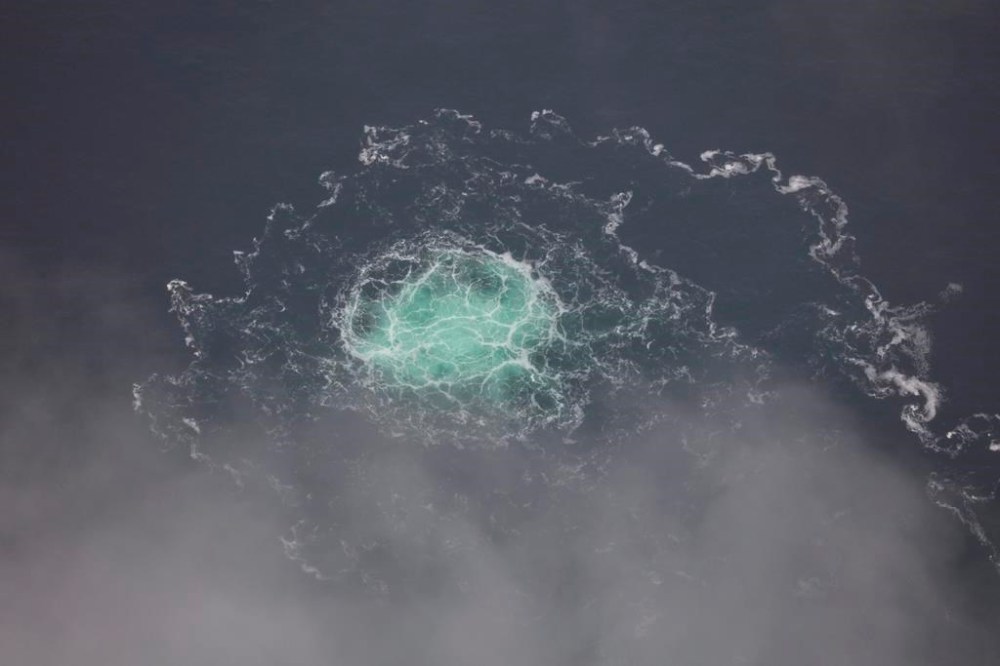
At the United Nations, Sergey Kupriyanov, spokesman for the Russian state-owned company Gazprom, which is the majority stakeholder in Nord Stream, told the council that data regarding the sudden drop in pressure in the pipeline and the gas leakage “make it possible to say with certainty that the leaks in the pipelines was caused by physical damage.”
Kupriyanov said in a video briefing that Gazprom has begun searching for possible solutions to make the Nord Stream system operational again. There is no estimate of how long it will take, he said, “but we can say with certainty that the task will be very daunting from a technical standpoint.”
Russia’s U.N. ambassador, Vassily Nebenzia, made a host of allegations implicating the United States in sabotage, including that it would benefit the U.S. gas industry. He then asked if the U.S. representative would not engage in “morbid fantasies about Russia and confirm that the United States “is not involved and has nothing to do with this sabotage?”
U.S. deputy ambassador Richard Mills accused Nebenzia of spreading “conspiracy theories and disinformation” and using “inflammatory rhetoric.”
“Let me answer his question. Let me be clear: The United States categorically denies any involvement in this incident, and we reject any assertions saying the contrary,” Mills said.
Moscow says it wants a thorough international probe to assess the damage to the pipelines, which were filled with gas but not supplying it to Europe. Putin’s spokesman has said “it looks like a terror attack, probably conducted on a state level.”
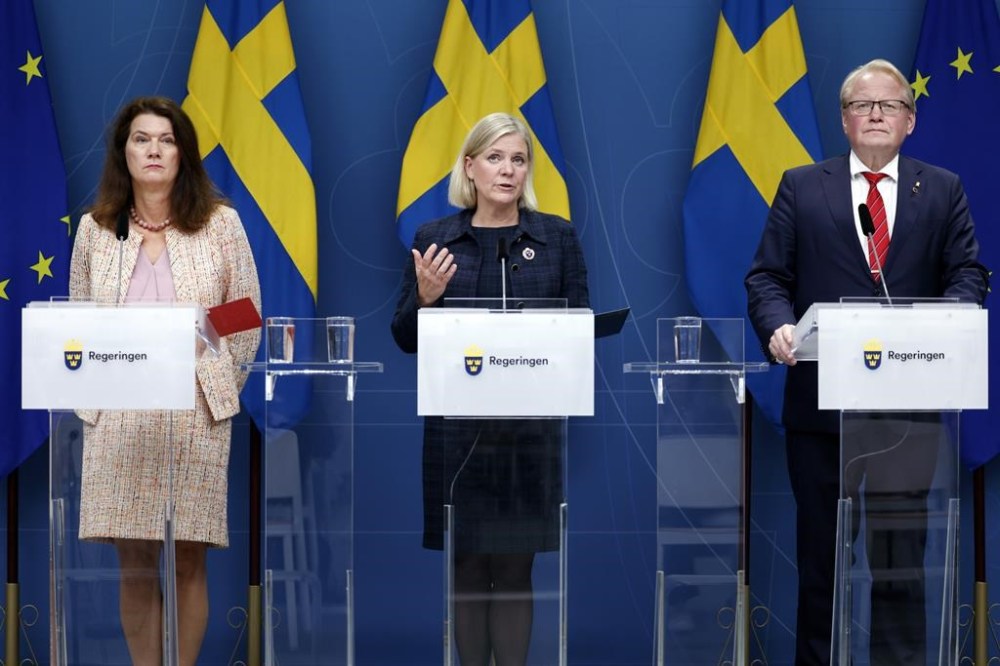
European nations, which have been reeling under soaring energy prices caused by Russia’s invasion of Ukraine, have noted that it is Russia, not Europe, that benefits from chaos in the energy markets and spiking prices for energy.
The U.S. has long opposed to the two pipelines and had repeatedly urged Germany to halt them, saying they increased Europe’s energy dependence on Russia and decreased its security. Since the war in Ukraine began in February, Russia has cut back supplies of natural gas sent to Europe to heat homes, generate electricity and run factories. European leaders have accused Putin of using “energy blackmail” to divide them in their strong support for Ukraine.
Russia stopped gas flows through the 1,224-kilometer (760-mile) long Nord Stream 1 earlier this month, blaming technical problems, while the parallel Nord Stream 2 pipeline had never opened.
Denmark and Sweden, meanwhile, said Friday that the explosions that rocked the Baltic Sea ahead of the huge methane leaks from the pipelines “probably corresponded to an explosive load of several hundred kilos (pounds).”
The leaks occurred in international waters and ”have caused plumes of gas rising to the surface,” the two Scandinavian countries wrote in a letter to the United Nations.
NATO has warned it would retaliate for any attacks on the critical infrastructure of its 30 member countries and joined other Western officials in citing sabotage as the likely cause of damage. Denmark is a NATO member, and Sweden is in the process of joining the military alliance. Both say the pipelines were deliberately attacked.
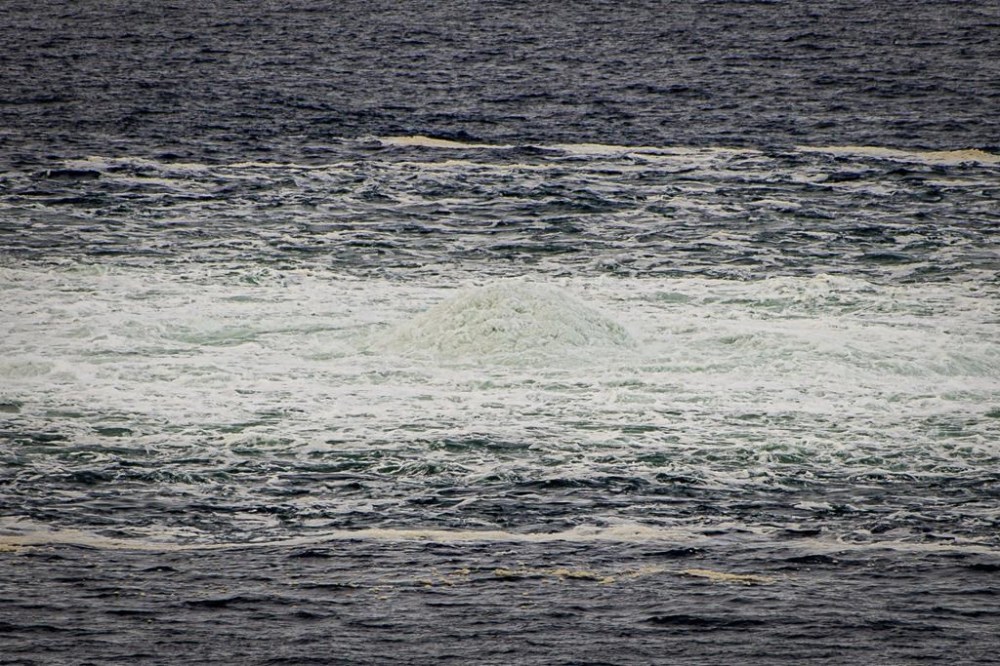
At the U.N., Russia is a permanent member of the Security Council while neither Sweden or Denmark will be represented at the meeting Friday as they are not members.
The Integrated Carbon Observation System, a European research alliance, said “an enormous amount of methane gas has been released into the atmosphere” from the damaged pipelines, about the amount of a whole year’s methane emissions for a city the size of Paris or a country like Denmark.
“We assume the wind on the leak area blew the methane emissions north to the Finnish archipelago, then (the emissions) bend toward Sweden and Norway,” said Stephen Platt, a professor with the Norwegian Institute for Air Research, part of the group.
The data was gathered from ground-based observations in Sweden, Norway, and Finland. Experts say these methane levels aren’t dangerous to public health but are a potent source of global warming.
The suspected sabotage has produced two methane leaks off Sweden, including a large one above Nord Stream 1 and a smaller one above Nord Stream 2, and two leaks off Denmark.
The Nord Stream 2 leak “has diminished, but is still ongoing,” the Swedish coast guard said, increasing its warnings for ships to stay 7 nautical miles (13 kilometers, 8 miles) from the blast areas.
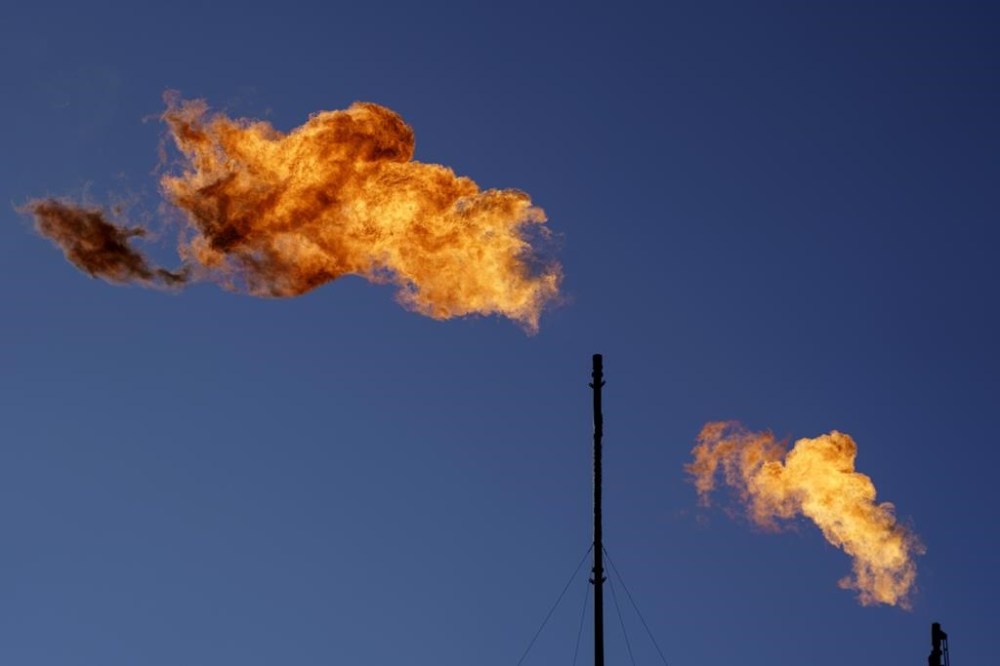
Nordic seismologists recorded explosions preceding the leaks. A first explosion was recorded early Monday southeast of the Danish island of Bornholm. A second, stronger blast northeast of the island hit that night and was equivalent to a magnitude-2.3 earthquake.
Denmark and Sweden also said they were worried about the blasts’ “possible impact on the maritime life in the Baltic Sea.”
Danish Prime Minister Mette Frederiksen said she would travel to London to discuss the gas leaks with British Prime Minister Liz Truss. She then will travel to Brussels to raise the issue with NATO Secretary General Jens Stoltenberg and European Council President Charles Michel.
The attacks on the pipelines have prompted energy companies and European governments to beef up security around energy infrastructure.
The fear of further damage to Europe’s energy infrastructure has added pressure on natural gas prices, which are already high and have caused widespread economic pain across the continent.
Authorities in Norway, a major oil and gas producer, have reported at least six drone sightings near offshore installations in the North Sea, prompting the Petroleum Safety Authority Norway to “urge increased vigilance.” Danish newspaper Ekstra Bladet said a drone was spotted Wednesday near a Danish offshore oil and gas installation in the North Sea.
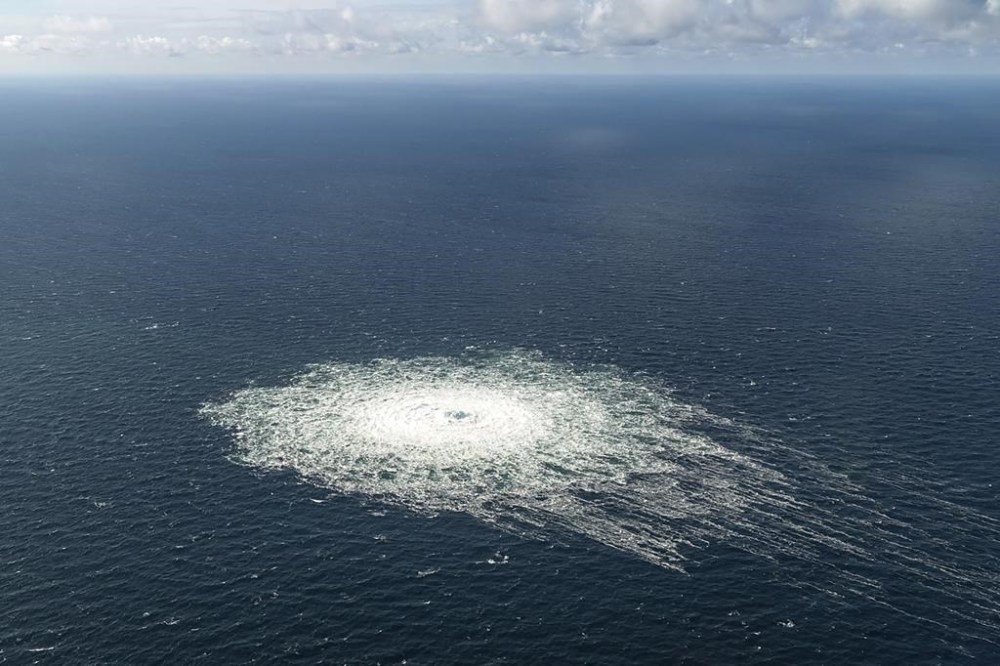
Sweden has also stepped up security around its three nuclear power plants.
___
Follow all AP stories about climate change issues at https://apnews.com/hub/climate-and-environment and stories about the war in Ukraine at https://apnews.com/hub/russia-ukraine.


